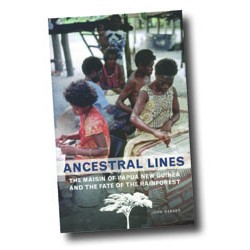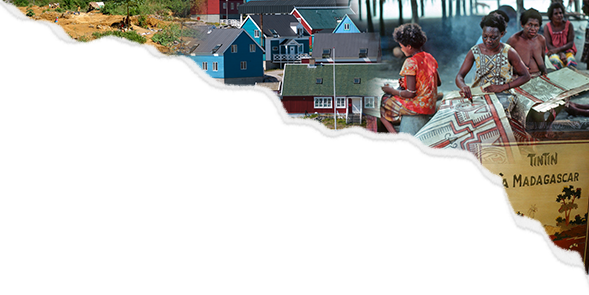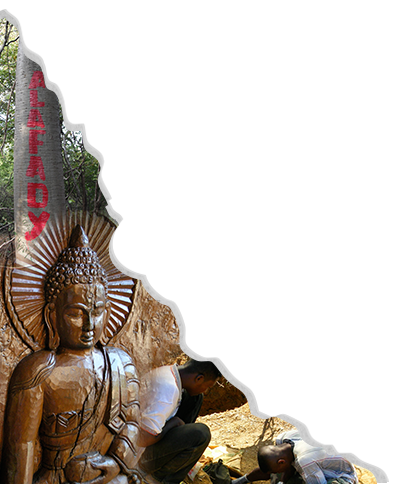
In the past several years, Ancestral Lines: The Maisin of Papua New Guinea and the Fate of the Rainforest has become one of the most popular ethnographies for first-year undergraduate courses in North America. The author, John Barker, who also serves as the series editor for Teaching Culture: UTP Ethnographies for the Classroom, shares his motivation for writing the ethnography, how he consciously designed it to work with or without a supporting textbook, and how he approaches undergraduate teaching. Next week, he will follow up with a guest post on research assignments for cultural anthropology students.
TC: What inspired you to write Ancestral Lines?
JB: Frustration! When I started teaching introductory anthropology courses, I wanted to use full-length ethnographies that were fascinating in their own right while engaging with core ideas and methods of the discipline. There are good ethnographies in abundance, but it is surprisingly hard to find ones that work well in first year classes, with or without a textbook. Most ethnographic monographs are not designed in ways that work in introductory classes. They focus upon problems of particular interest to the author and her/his subfield and at best work with only a few of the themes I want to cover. In some ways, I found the handful of ethnographies deliberately written for undergraduates to be even less suitable as they tended to be highly autobiographical, forcing students and the instructor to sift out general themes from the personal stories. So I decided to write my own. And I had a lot of fun doing it.
TC: What is your favourite part of the book?
JB: I really enjoyed writing up the sections on how I made my own piece of painted bark (tapa) cloth. This provided a nice story arch between the chapters while illustrating a key theme: that aspects of a culture, such as economic activities and religion, are deeply interwoven.
TC: How do you see this book being used in the classroom? Is there anything unique about it that would be particularly helpful to those teaching undergraduate anthropology?
JB: I deliberately designed the book to work with a standard introductory textbook in the sequence: fieldwork methodology, economics, social organization, religion, politics, and cultural change. The book can thus be used over the course of a term or towards the end as a summing up. It works well with or without a textbook.
TC: What are your favourite courses to teach?
JB: I teach a wide range of courses including Oceanic ethnography, field methods, religion, and theory, ranging from small seminars with graduate students to large “service” courses. Each course has its particular challenges and pleasures. I’ve always enjoyed the intro courses, not least because I meet young people at the start of their university career who are heading off into a diversity of fields.
TC: What do you enjoy most about teaching anthropology, and what do you find the most challenging?
JB: I design my courses in ways that encourage students to explore on their own. This is challenging in any class, but particularly in large intro courses with 300 or more students in a lecture hall. In all my courses, I have students design their own research projects, step by step, culminating in a research “portfolio” among first years and a term paper or webpage (with substantial text) for upper level students. Increasingly, I’m experimenting with blog assignments. One of the most rewarding aspects of teaching for me is when I meet up with a student in his or her senior year who tells me that the assignment he or she undertook in my introductory course set the direction for the remainder of studies.
TC: How would you describe your approach to teaching?
JB: I approach teaching every year as if it were the first. I look for the best possible reading materials, pick up ideas for assignments, and reassess what worked and didn’t work in previous years. I believe that if I can’t keep a lively interest in the subject and materials, how could my students! I see myself as more of a facilitator for student learning than an expert, on a parallel and (hopefully!) resonating track to my students. I unfailingly learn a lot from them.
John Barker is a Professor of Anthropology at the University of British Columbia. He has conducted anthropological fieldwork in Papua New Guinea and amongst the Nuxalk and Nisga’a First Nations of Canada. He has published extensively on Christianity amongst the indigenous peoples of Oceania and British Columbia, the history of anthropology, and the impact of environmental activists in Papua New Guinea.



